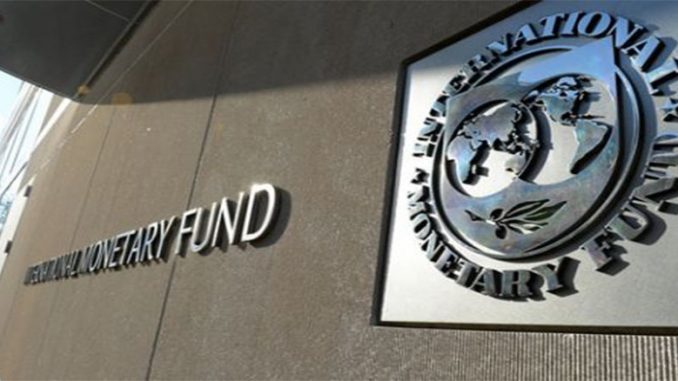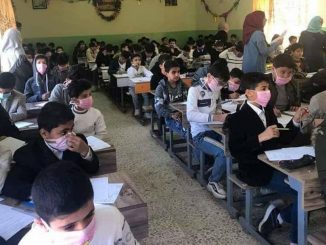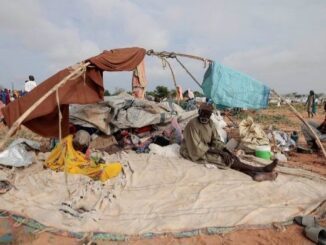
Egypt has been dependent on bailouts from wealthy Gulf countries and the IMF in recent years, while investors have withdrawn billions of foreign reserves
Egypt is the second most country at risk of a debt crisis, coming just after war-torn Ukraine, according to analysis by Bloomberg.
The data showed that, taking into account public debt, interest costs, and yield on dollar bonds, Egypt’s economy was the most at risk in the Middle East.
Three other Middle Eastern countries – Tunisia, Bahrain, and Jordan – were also among those most exposed.
Egypt has been gripped by economic crisis for years, a situation exacerbated by the war in Ukraine, which has severely affected food prices in the country.
Official figures released on Sunday showed annual inflation in Egypt reached a new record 39.7 percent in August, while by early this year, the Egyptian pound had lost half its value against the dollar.
Egypt has been dependent on bailouts from its wealthier neighbors and the International Monetary Fund (IMF) in recent years, while investors have pulled billions out of Cairo’s foreign reserves.
Although the financial crisis has a range of causes, many opposition figures have pointed fingers at the increasing grip the military has held over the economy since the 2013 coup that ousted the elected government of Mohamed Morsi.
“According to a Bloomberg analysis, Egypt is the second most vulnerable country on earth to a debt crisis. The only country more vulnerable is Ukraine,” tweeted Egyptian analyst Timothy E Kaldas.
“Ukraine was invaded by Russia’s military whereas Egypt’s economy was invaded by its own military.”
Amid a deepening economic crisis and increased demands for reform from its traditional financial backers, Egypt is seeking to diversify its resources with partners in the east.
The economic situation in Egypt, one of the top three economies in the Middle East and the second largest in Africa, has become a national crisis.
The intervention of the army in the country’s economy, the weakening of the national currency, the crisis in Ukraine, the post-Covid situation and numerous international loans have all made this situation more critical.
Egyptian authorities had relied mostly on the help of their traditional Arab and western allies, whose support they won by promoting western values and stability and maintaining a regional balance of power.
However, Cairo gradually realised that this aid was accompanied by preconditions that would either strain the Egyptian economy, as in the case of the International Monetary Fund (IMF) loans, or direct wealth outside of the country to its Arab investors in the Gulf region.
It is for these reasons that Egypt has recently sought to diversify its sources of foreign aid and strengthen relationships with other allies, particularly those in the far east.
The Gulf monarchies have served as Egypt’s second main ally. Egypt plays a key role in helping to stabilise and provide security for the region; in turn, the Gulf states have been committed to supporting the Egyptian economy. Since 2013, the Arab regimes have given Egypt $12bn to stabilise the country after Sisi’s coup against former Egyptian President Mohamed Morsi, a leader of the Muslim Brotherhood.
Yet Egypt no longer enjoys free and unlimited financial aid from its allies, as in the past.
The Gulf monarchies, along with the IMF, have increasingly pressured Sisi to meet the requirements of the IMF and implement reforms. They are simultaneously developing ambitious economic plans to diversify their economies and seeking alternative revenue sources to oil, such as Saudi Arabia’s Vision 2030, which, as in the past, has helped GCC countries reduce the budget deficit and spending.
The strict conditions of the IMF and the reduced willingness of the Gulf monarchies to help Egypt have forced Cairo to look for new partners. Although its traditional partners remain vital to the country’s economic survival, Egypt has been looking for new eastern donors who would impose fewer constraints.
Among its allies, China is the most influential, and a strategic partnership with Egypt gives Beijing not just economic benefits but also geopolitical weight. Indeed, for China, Egypt is a distressed asset – the Belt and Road Initiative (BRI) partner is too important to ignore, its economy too big to be allowed to fail.
Egypt’s status as a dialogue partner in the Shanghai Cooperation Organization, its application to join the Brics group that has been approved, and the possibility of the de-dollarisation of trade with Russia, China and Turkey are further signs of Cairo’s economic diversification and new balance with traditional partners.
However, Egypt proceeds slowly in this process and continues to focus attention on its main financial backers in the West and the Gulf.



